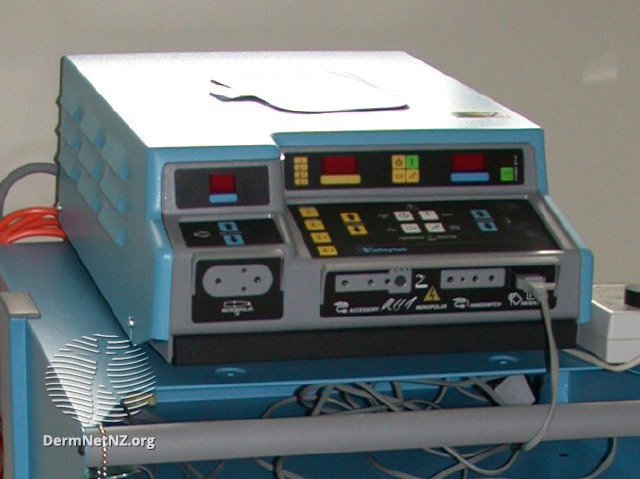
Hyfrecation
Introduction to Hyfrecation
Hyfrecation is a specialized treatment that utilizes an electric current to target and eliminate benign skin lesions such as angiomas, sunspots, milia, and seborrheic keratosis. The procedure is conducted using a hyfrecator, a small needle that heats through the electrical current, enabling it to cauterize or melt away the undesirable skin formations. Below, we will detail the procedure, post-treatment care, and considerations.
Procedure
Numbing: The area to be treated is typically numbed with lidocaine to ensure comfort during the procedure.
Cauterization: The hyfrecator's heated needle is applied to the lesions, effectively cauterizing them. This part should be painless due to the numbing.
Scab Formation: After treatment, a small scab will form in the treated area, which usually falls off within a week, revealing fresh, healthy skin beneath.
Test Spot: If multiple areas are to be treated, a test spot may be performed to ensure there are no concerns with discoloration or pigment changes.
Post-Treatment Care
Immediate Care: The scabbed area will be cleaned and treated with antibiotic ointment, then bandaged.
24-Hour Care: Keep the bandaged area dry and covered for the first 24 hours.
Daily Care: After the first day, remove the bandage, wash the treated area with soap and water, apply Vaseline, and continue to keep it covered until the scab falls off.
Healing Time: Complete healing typically occurs within a week when the scab falls off.
Considerations
Cosmetic Nature: Hyfrecation is often considered a cosmetic procedure. Therefore, it may not be covered by insurance, and cosmetic pricing may be provided.
Potential Risks: As with any procedure, it's essential to discuss potential risks and side effects with your healthcare provider.
Professional Consultation: Always consult with a healthcare provider who is experienced in hyfrecation to ensure that it is an appropriate treatment for your specific skin concerns.
Conclusion
Hyfrecation offers a precise and effective option for treating benign skin lesions. The procedure is generally painless, and recovery is typically smooth with proper care. Being informed of the procedure, aftercare, and costs associated with this cosmetic treatment allows patients to make educated decisions about their skincare.
